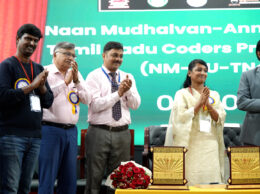New Delhi: Doctoral Degree, popularly known as PhD, is one of highest degrees offered by universities and educational institutes. To accelerate professional career and pursue in depth research on specific subjects, PhD course is the right answer for it. For getting admission to PhD programme offered by Universities, colleges or institutes is not an easy task. Top ranked universities and research institutes have their own policy in place for admission procedure in PhD programmes.
The UGC (Minimum Standards and Procedure for Award of MPhil/PhD Degrees) Regulations 2016, which has been notified in July 2016 by the University Grants Commission, has incorporated some provisions where guideline for PhD admission has been mentioned. The MPhil/PhD regulation has highlighted stringent and streamlined guidelines for the PhD admission process. The MPhil/PhD regulation 2016 is applicable to UGC approved institutes. Here, SkillOutlook presents the key features of general PhD admission process and entrance test.
Number PhD seats: In a first exercise, on an annual basis, the academic bodies the universities decide the PhD scholars to be admitted depending on the number of available Research Supervisors and other academic and physical facilities available. Also the number of PhD candidates is decided on the norms regarding the scholar- teacher ratio, laboratory, library and such other facilities.
Admission notification: Universities/Institutes notify well in advance the details of PhD admission process: number of seats for admission, subject/discipline-wise distribution of available seats, criteria for admission, procedure for admission, examination centre(s)where entrance test(s) shall be conducted and all other relevant information for the benefit of the candidates. The notification is generally available on the official website of the university/institution and through advertisement in newspapers.
A two stage selection process: As per the regulations, the admission should be based on two stage process: Entrance Test and Interview & Viva Voce. The PhD Entrance Test will be conducted by the university/institute while the Entrance Test shall be qualifying in nature. Short listed candidates who have scored minimum 50% marks will be called for interview to present the research ideas and interests.
PhD Entrance Test: Some universities call it PhD entrance test, some term it Research Entrance Test and others call it Research Aptitude Test. Generally, the test has two sections; each section will carry equal marks (50 each) and a total of 100 marks. One section should carry 50% marks on research methodology. In general, research methodology covers research aptitude, reading comprehension, logical reasoning, and data interpretation. The other section will be purely based on subject/domain specific in which candidates apply for PhD. This test is only qualifying in nature. Candidates need to score at least 50% to advance to next test – interview/research presentation.
Interview & Viva Voce: The second stage of the screening test. In the Interview test, candidates will present his/her research ideas before the Faculty Research Committee (FRC)/College Research Committee. The evaluation of performance of the candidates in this round should be based on three factors: the candidate’s competence for the proposed research; the research work can be suitably undertaken at the Institution/College; and the proposed area of research can contribute to new/additional knowledge.
Final selection will be based on the performance of the candidate in the interview/research presentation test only.
Exemption for UGC-NET candidates: As per the , universities/institutions may decide separate terms and conditions for PhD Entrance Test for those students who qualify UGC-NET (including JRF)/UGC-CSIR NET (including JRF)/SLET/GATE/teacher fellowship holder or have passed MPhil programme. Considering the MPhil/PhD 2016 regulation, many universities have exempted UGC-NET qualified candidates for appearing the PhD Entrance Test.
Here, it can be mentioned that the above features and guidelines are practised by UGC approved institutions as per the MPhil/PhD regulation 2016. Generally, Technology and Engineering institutes, Institutes of National Importance, and others who don’t come under the regulation of the UGC, may adopt the different admission process for enrolling PhD candidates.








